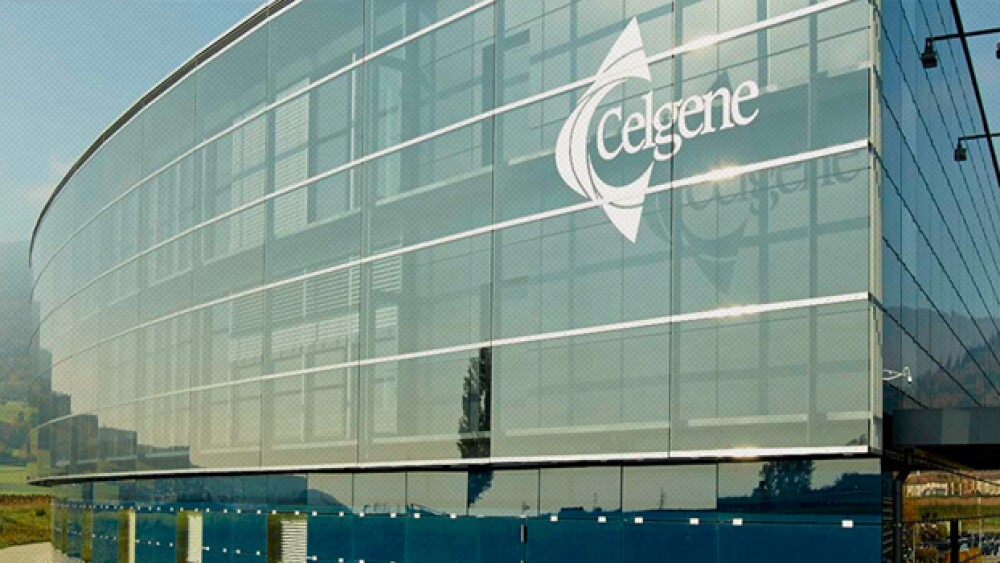The U.S. Food and Drug Administration (FDA) accepted Celgene’s New Drug Application (NDA) for fedratinib for myelofibrosis. It also granted it a Priority Review, with a target action date of September 3, 2019.
The U.S. Food and Drug Administration (FDA) accepted Celgene’s New Drug Application (NDA) for fedratinib for myelofibrosis. It also granted it a Priority Review, with a target action date of September 3, 2019.
Fedratinib is an oral kinase inhibitor with activity against Janus Associated Kinase 2 (JAK2) and FMS-like tyrosine kinase 3 (FLT3). The drug is a JAK2-selective inhibitor with a higher potency for JAK2 over JAK1, JAK3 and TYK2.
Abnormal activation of JAK2 is linked to myeloproliferative neoplasms (MPNs), including myelofibrosis and polycythemia vera. In models of cells that expressed mutationally active JAK2 or FLT3, fedratinib decreased phosphorylation of signal transducer and activator of transcription (STAT3/5) proteins, which inhibited cell proliferation and stimulated apoptotic cell death, which is a complicated way of saying the drug keeps targeted cells from dividing and causes them to die.
Myelofibrosis is a serious and rare bone marrow disease. It disrupts the body’s normal growth of blood cells. Bone marrow is slowly replaced by fibrous scar tissue, which prevents the bone marrow’s ability to manufacture red blood cells. It can lead to anemia, weakness, fatigue and swelling of the spleen and liver. It is classified as a myeloproliferative neoplasm, a cluster of rare blood cancers derived from blood-forming stem cells. In the U.S., myelofibrosis occurs in 1.5 out of every 100,000 annually.
The NDA was built on JAKARTA and JAKART2 clinical trials. JAKARTA is a pivotal Phase III, multicenter, randomized, double-blind, placebo-controlled trial that is studying the efficacy of daily oral doses of fedratinib compared to placebo in patients with intermediate-2 or high-risk primary myelofibrosis, post-polycythemia vera myelofibrosis or post-essential thrombocythemia myelofibrosis with splenomegaly. There were 289 patients across 94 sites in 24 countries. The primary endpoint was spleen response rate.
JAKARTA2 is a Phase II, multicenter, open-label, single-arm trial studying the efficacy of a once-daily dose of fedratinib in patients who had already been treated with ruxolitinib and had a diagnosis of intermediate-1 with symptoms, intermediate-2 or high-risk primary myelofibrosis, post-polycythemia vera myelofibrosis or post-essential thrombocythemia myelofibrosis. It involved 97 subjects at 40 sites in 10 countries. The primary endpoint was spleen response rate.
The FDA placed a clinical hold on the fedratinib program in November 2013 in response to possible cases of Wernicke’s encephalopathy. This is an acute neurological condition usually caused by thiamine deficiency. The clinical hold was lifted in August 2017.
Celgene also plans to study fedratinib in combination with Acceleron Pharma’s luspatercept. Luspatercept is a first-in-class erythroid (red blood cell) maturation agent (EMA) Acceleron is developing for patients with serious blood disorders associated with a late-stage defect in RBC maturation.
On December 2, 2018, Celgene and Acceleron released data from their Phase III MEDALIST trial evaluating luspatercept in patients with myelodysplastic syndromes. The trial met the primary endpoint of RBC transfusion independence for 8 or more weeks during the first 24 weeks of the trial.
“The acceptance of the NDA and granting of Priority Review for fedratinib represent the first potential new treatment option after many years for patients affected by myelofibrosis,” stated Jay Backstrom, Celgene’s chief medical officer. “Patients with myelofibrosis, including the number who are ineligible for or failed existing therapy continues to increase, representing a well-defined unmet medical need. We believe fedratinib can play an important role in the treatment of myelofibrosis and we look forward to working with the FDA as the review process advances.”





